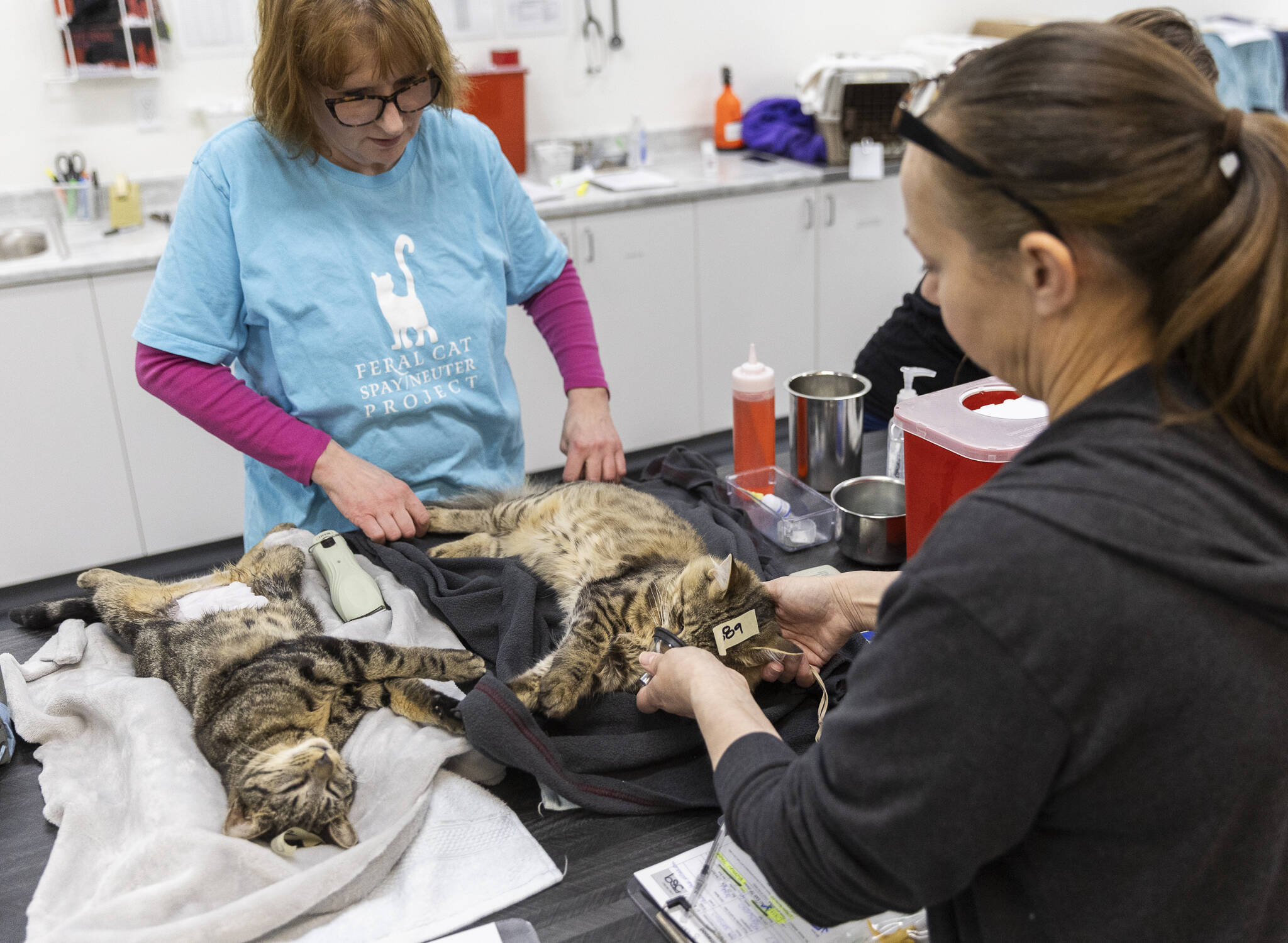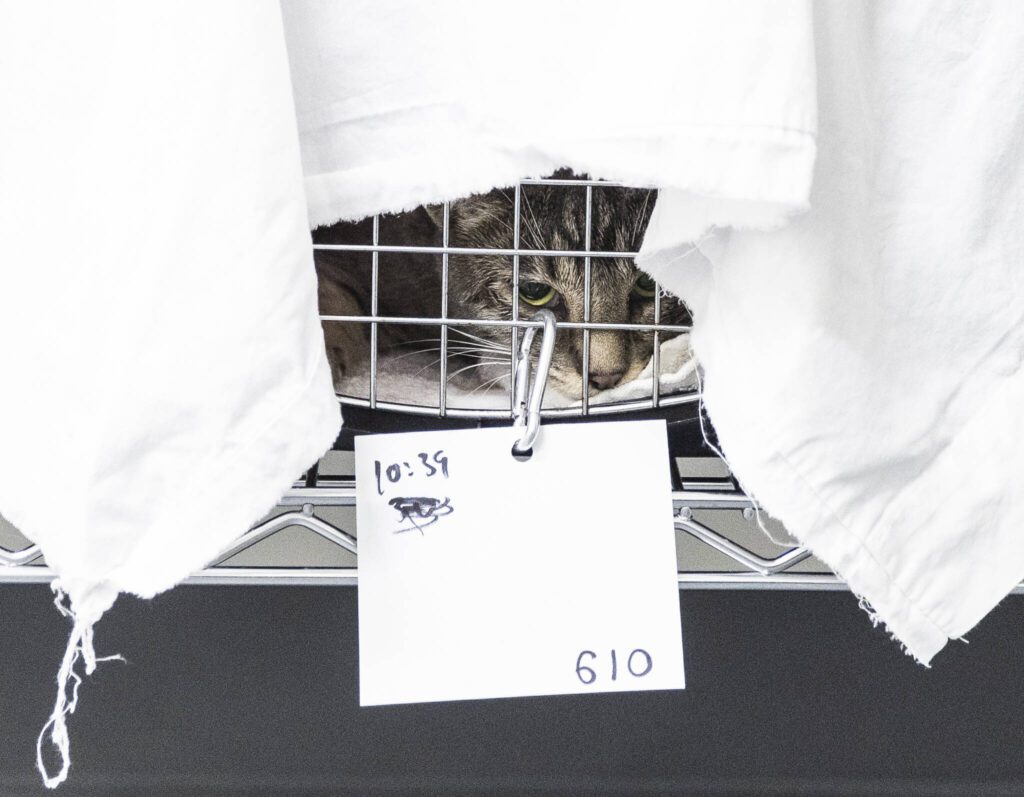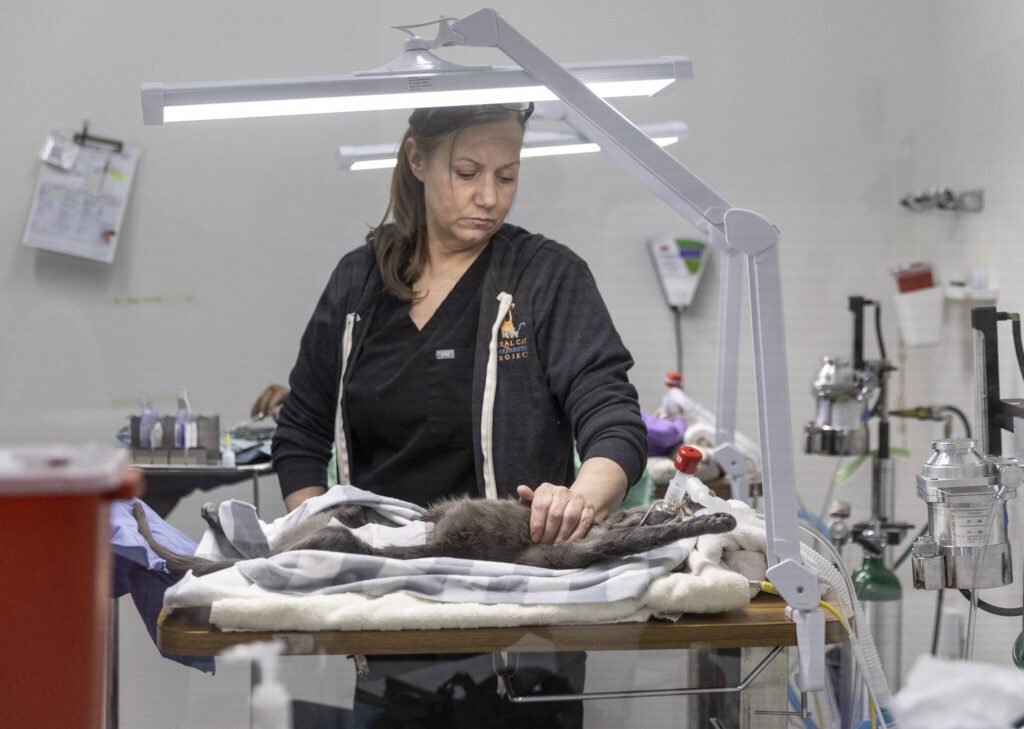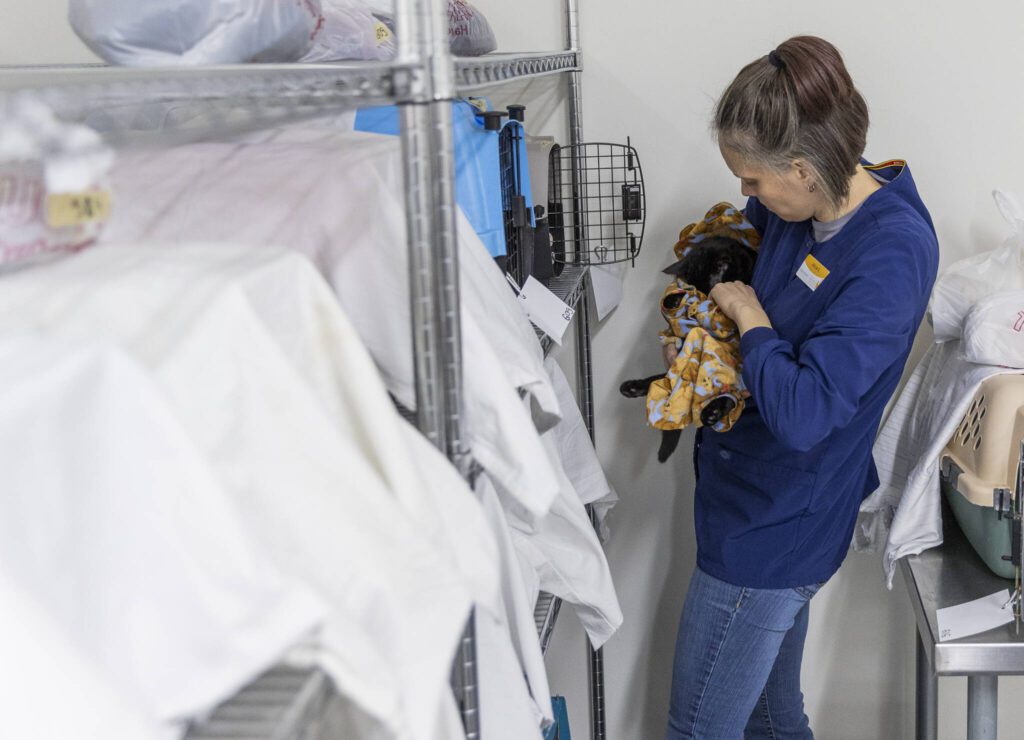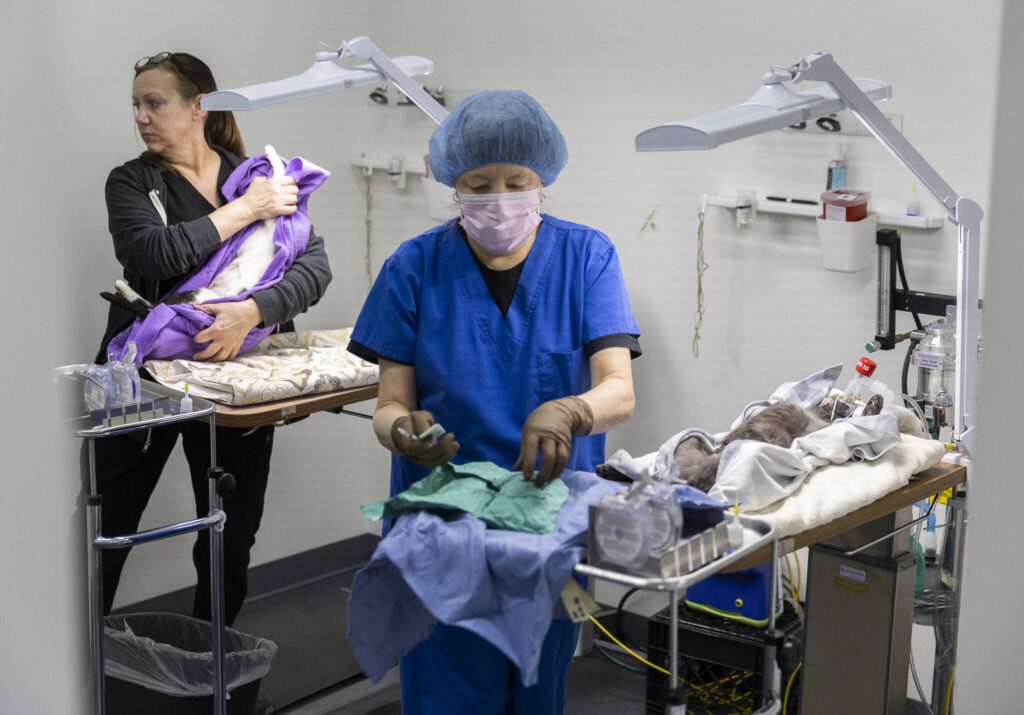By The Herald Editorial Board
There are soft hearts among us who, upon discovering a feral mother cat and her kittens in the neighborhood, will put out food. Yet, that act of kindness, understandable as it is, doesn’t get to the root of the problem: the potential for a population boom of feral cats, which literally breeds on itself, adding to too many unsheltered cats, suffering for the animals and euthanasia for felines that can’t find homes.
That’s why a cadre of cat lovers have for a number of years set out traps for feral cats, capturing them humanely so that they can be spayed or neutered and — after recuperating — can be released to prowl again but without adding any more litters to the mix.
Chris Federlein, who lives on Camano Island, has been involved with this effort for about 10 years, working with others throughout Snohomish, Skagit and King counties, to locate colonies of feral cats, set traps, collect the animals and then bring them to the Feral Cat Spay/Neuter Project’s clinics to fix the felines before they are released near where they were found.
And there are plenty of cat colonies to deal with.
“We generally work with people who are caring for colonies,” Federlein said. “Like today, I’m taking traps out to a gentleman in Lake Stevens who has a small colony, a mom and three kittens.”
Federlein takes the traps out, shows the colony caretaker how to work the traps, and once they’re caught, will drive the caged cats to the project’s new Lynnwood clinic for treatment.
Another colony of about 10 cats on Ebey Island will also get a camera set-up to make sure all felines are accounted for, she said.
Although it’s a spay day rather than spa day for the cats, they’re getting expert treatment at the new clinic.
The feral cat project recently moved into a new facility in Lynnwood, taking over part of a former drugstore — what was once a pharmacy window now allows a sweeping view of the clinic’s operating room and preparation areas — which provides spay or neuter services for the feral cats, and also for cats owned by lower-income families and individuals who are charged a nominal fee for the service.
Like a mother cat carrying kittens by the scruffs of their necks, the Feral Cat Project has been moving from location to location in recent months until their new facility was ready, said Amy Ferguson, executive director of the project.
“We’re glad to be done with the moves,” she said. “And as time goes on we would love to expand what we do.”
About 37 percent of the cats treated by the project are feral cats, at the Lynnwood location and another facility in Renton. The project also offers spay and neuter services for pet cats, along with vaccinations, de-worming and an ID microchips at reduced fees.
On average, the Lynnwood facility treats about 35 cats a day, with Renton treating another 50 cats. The Lynnwood facility has a staff veterinarian, but also relies on vets in the region.
In addition to the spay/neuter treatment, the cats are vaccinated for rabies and can, as needed, get treatment for wounds, de-worming or even tail amputation. And, in cases where cats are too sick or injured, can be humanely euthanized.
The project has, over the years, increased the percentage of services it offers for low-income cat owners, said Eudora Hawkes, clinic manager for the Feral Cat Project.
“Somewhere along the way, we realized all of these feral cats are coming from domestic cats that have been unaltered, and they’re being let out into the community,” Hawkes said. “That’s why we opted to start seeing those owned pets as well, and we recognize that by providing access to spay and neuter services for all cats that were really benefiting both ferals and pets.”
Altogether, about 8,000 cats are fixed each year, and since the project’s start in 1997, an estimated 160,000 cats have been helped.
Like herding cats, it’s hard to get numbers on the results of the project, but Ferguson says that at shelters in the region, they know that euthanasia rates have dropped. As well, they have fans in the birding community for keeping feral cat populations in check, which can be a major contributor to bird predation.
“I’m a birder myself. I love birds,” Ferguson said. “I feel like we should be doing whatever we can do to help that. It’s not the cat’s fault they’re out there.”
The nonprofit, supported by donations and its service fees, employs a staff of 14, and relies heavily on about 60 volunteers, who work in the clinic, care for cats before and after surgery and help with bringing in and releasing the cats.
Another of the volunteers working to bring in and release feral cats is Janis Newman, a Snohomish County resident, who talked about a recent cat that while caught in a trap, wasn’t exactly feral. All cats, Newman said, are checked for microchips, and this cat had one that led to its owner. But the cat hadn’t been fixed yet. The owner agreed to the treatment and was able to afford the reduced price and the cat was returned home.
Other cats, sadly, aren’t feral, but have been abandoned by owners.
A lack of veterinary doctors, increased fees for care and the pandemic have contributed to an increase in abandonments by owners, Newman said.
“The tame cats are just as much a problem as the feral cats. I mean, a cat is a cat,” she said. If people are not spaying or neutering their tame cats, the problem is just as bad as it is with feral cats.
Newman, who has helped with rounding up feral cats for about 26 years, understands that the time and expense of ensuring a pet is spayed and neutered — the same goes for dogs — is difficult for some, but she urges pet owners to find a way to get it done.
“It’s for the cats, but also for the people,” Newman said. “I look at it as helping the people, but it’s so satisfying getting these cats fixed. Like this one I took in today. Now she’s not going to be adding to the problem.”
Be part of the fix
To donate time or money to the Feral Cat Spay/Neuter Project, go to the project’s contact page at feralcatproject.org/contact.
Its Lynnwood clinic is at 17633 Highway 99, Suite 110, Lynnwood, WA, 98037.
Correction: The number of cats treated at Feral Cat Spay/Neuter Project is 35 a day.
Talk to us
> Give us your news tips.
> Send us a letter to the editor.
> More Herald contact information.
